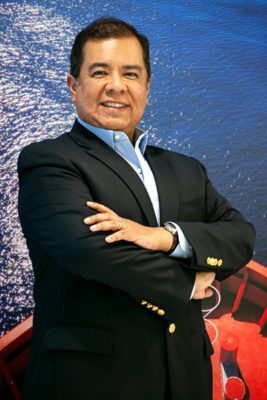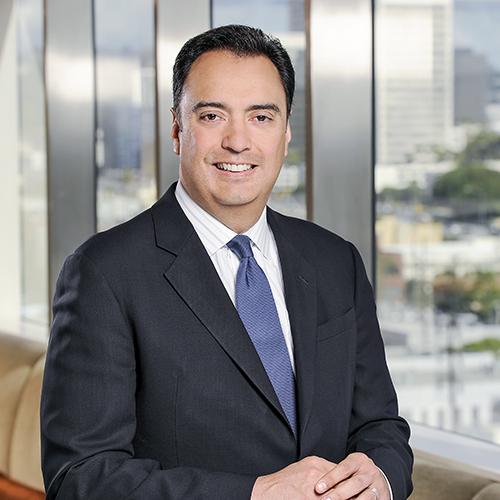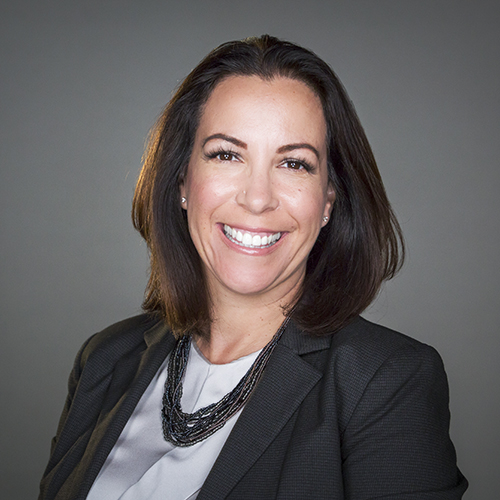|
Getting your Trinity Audio player ready...
|

At times, our path in life might seem predestined, but everyone reserves the right to go off course. Cesar Salas believes he was predisposed to be an engineer and work with numbers: his father was an engineer, he became one, his brother became one too, and his two sisters became architects. But he was also a people person. So, he ultimately found his niche in human resources after an HR veteran who saw his potential encouraged him to pursue a career in the field. Committed to his current course for the past thirty-seven years, he currently serves as head of HR, administration, compliance, and quality at Hamburg Süd, a German global maritime transportation company.
“As a child, I wanted to be a physician and a priest. When I became an HR manager at Abbott Laboratories, it was a perfect match,” Salas says. “Working in the life sciences industry was as close as I was ever going to be a physician. As an HR manager, however, I feel like a priest in the sense that I became someone who people would go to for counseling and guidance.”
A native of Lima, Peru, he’s the oldest of four born to Cesar and Vicky Salas.
Salas earned a bachelor’s degree in industrial engineering from Universidad de Lima, and like his father, he found employment at IBM as an engineer. It was during this time that HR manager Enrique Angulo, who Salas considers his greatest mentor, encouraged him to pursue HR.
“I started at IBM as a computer programmer,” he says. “One day, my manager asked me, ‘Where would you like to move for your next assignment?’ He gave me four options: sales, finance, customer service, and human resources. Although I had no clue what was being done in HR, it just so happened that there was an opening in human resources and the HR manager [Angulo] wanted to interview me for the job. Talking to him for an hour and having him explain what they do in HR was a life-changing event. At the end of the interview, he asked if I had any questions. I said, ‘Yes, when do I start?’”
Based in Lima while working at IBM, one of the first challenges he faced in HR was spurred by volatile economics. Escalating inflation in Peru required continuous salary reassessments, and the manual process of filling out a form and sending it up the chain of command was too slow. Encouraged by Angulo, Salas tapped into his IT skills and developed a program from scratch where a manager could make a salary recommendation, send it to the second-line manager, and then get final approval from the HR manager, who would input it into the system.
“Our IT department was unable to build the system due to large backlogs, so my boss thought of me,” Salas says. “From then on, I started building systems. I worked at IBM for fifteen years at a time when there were no limits to what you could learn as long as you were motivated.”
Salas has always been focused on learning and continuing to hone his skills. So while working at IBM, he began working toward an MBA from the Universidad ESAN in Lima. And today, he’s currently working on a doctorate in business at Maastricht School of Management in the Netherlands. He is also a senior certified professional at the Society of Human Resources Management.
Aside from discovering where he had had knowledge gaps, Salas says that working for an American company in Latin America also enhanced his global thinking. It revealed a dichotomy: Americans want immediate results while the culture in Latin America requires a more personal and relationship-based approach when conducting business, Salas says.
“Working in different global companies in Latin America, I found that many of them didn’t invest enough in developing talent locally,” Salas says. “I felt that it was important to shift the paradigm and build the local talent first as part of a global company subsidiary.”
Salas’s HR leadership became truly global when he worked on opening a new office in Australia for Respironics (now part of Phillips). “Respironics needed an international HR head for the offices outside the United States,” he says. “I was able to leverage on my experience in Latin America, and I realized that the different geographies under my responsibility [Europe, Asia, and Latin America] had different labor legislations but similar people-management issues. Basically, the United States is pro-employer, whereas the rest of the world is pro-employee. When I realized this, I knew I had become a global executive.”
As he continues to build his HR skill set, future challenges include changing technology, which has not eluded HR. Automation will continue to take over traditional jobs while future workers will need the skills to manage it, Salas says. According to Salas, one HR essential will not change: communication.
“It’s the one thing that can make or break a company,” he says. “Ninety-nine percent of the problems I deal with involve communication between employees. You may be a leader with great business acumen, but if you cannot communicate properly, the chances of being an effective leader are very small.”
Working at Hamburg Süd in Miami, Salas finds himself discovering a new industry all over again, and that’s how he likes it.
“I was willing to explore the challenge of moving to a different industry where I have been able to continue leveraging my acquired skills and experience,” Salas says. “I am always open to new challenges, and I am willing to continue my career no matter where it takes me in the years to come.”

